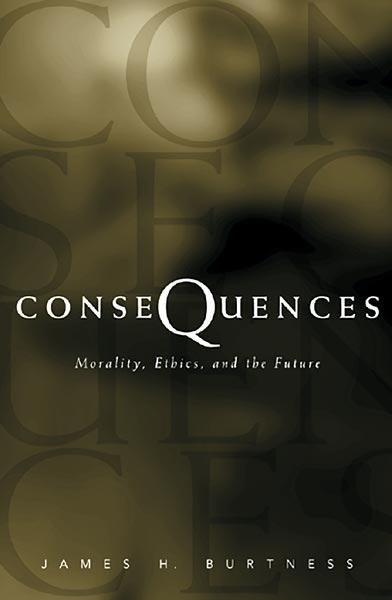Consequences: Morality, Ethics, and the Future
How can Christians think responsibly about
ethical matters, and in what way can they
make moral claims in a largely non-Christian
society? How can people engaged in serious
moral disagreement be brought into
constructive conversation?
James Burtness addresses these questions in five steps. He first describes the connections and disjunctions between faith and ethics. He then discusses morality as a social phenomenon. In the heart of the book, he analyzes four options for doing Christian ethics: deontology, situationism, character ethics, and teleology. Burtness then advocates for a version of teleology, known as consequentialism, as the best way for Christians to think ethically in our time. Consequentialism is the method by which moral decisions are made primarily in the light of anticipated outcomes for the common good. Finally, Burtness demonstrates the viability of his approach and its benefits both within, and outside of, the Christian community.
James Burtness addresses these questions in five steps. He first describes the connections and disjunctions between faith and ethics. He then discusses morality as a social phenomenon. In the heart of the book, he analyzes four options for doing Christian ethics: deontology, situationism, character ethics, and teleology. Burtness then advocates for a version of teleology, known as consequentialism, as the best way for Christians to think ethically in our time. Consequentialism is the method by which moral decisions are made primarily in the light of anticipated outcomes for the common good. Finally, Burtness demonstrates the viability of his approach and its benefits both within, and outside of, the Christian community.
- This item is not returnable
- Ships in 2 or more weeks
-
Quantity discount
- # of Items Price
- 1 to 9$18.00
- 10 or more$13.50
$18.00
